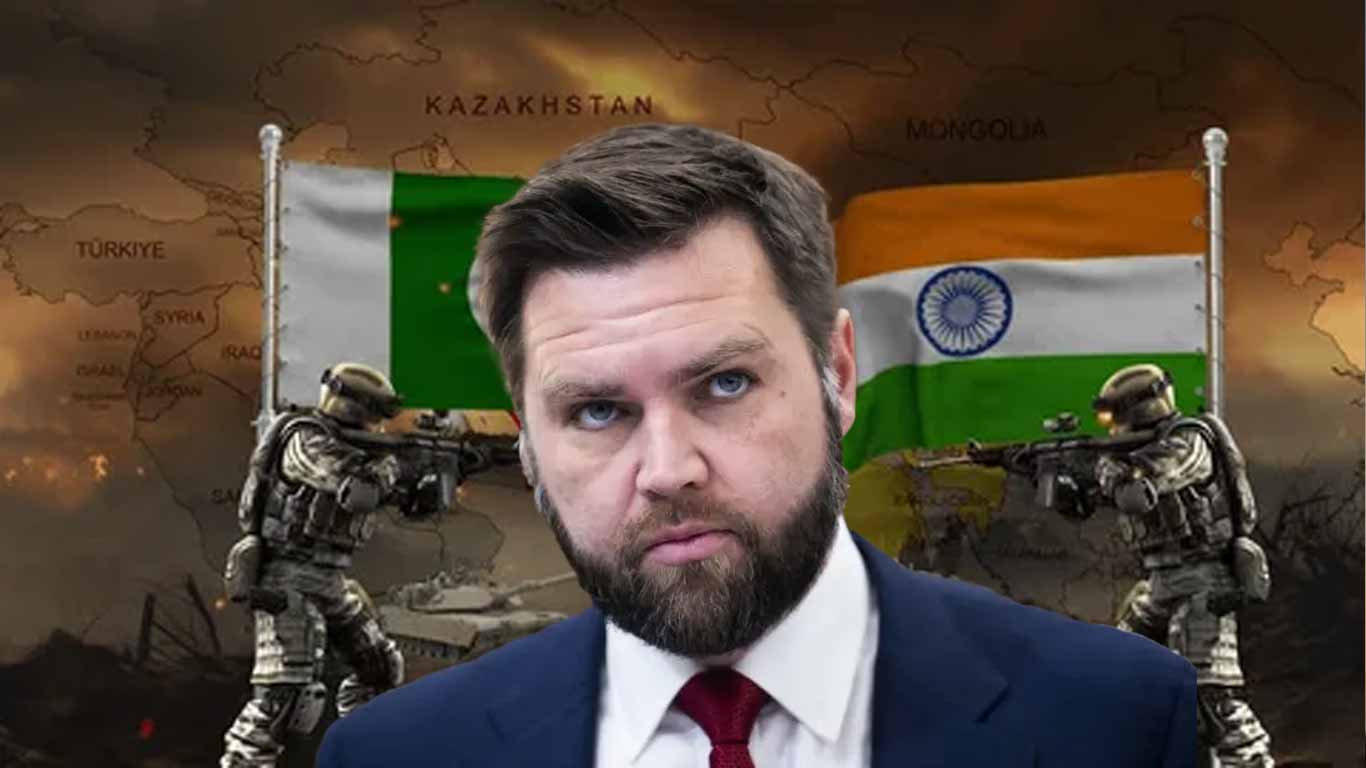In a blunt and telling statement, US Vice President JD Vance has stirred diplomatic waters by declaring that a potential war between India and Pakistan is "none of our business."
This comment, while resonating with the growing isolationist sentiment in certain corners of Washington, marks a deeper shift in the United States' geopolitical stance — one that places India squarely in its strategic camp while leaving Pakistan out in the cold.
This candid admission is not just a policy shift; it’s a message. A message that Pakistan can no longer afford to ignore.
A relationship in decline: US-Pakistan ties at their lowest
Once labeled a "non-NATO ally," Pakistan now finds itself diplomatically sidelined. Over the years, the US-Pakistan relationship has suffered from mistrust, miscommunication, and conflicting interests. While cooperation on counterterrorism remains on paper, in practice, the ties have frayed — and recent events have only made that more obvious.
US Vice President JD Vance’s blunt remark that a war between India and Pakistan is "none of our business" signals a strategic US tilt toward India. What does this mean for Pakistan’s foreign policy?
From Washington’s silence following India's preemptive military strikes to the absence of even a symbolic condemnation, the message has been loud and clear: the US stands closer to India than ever before.
Trump-era shadows still loom large
The roots of this alignment go back several years. During the Trump administration, the signals were mixed but telling. Former President Trump issued condolences for terror attacks in India but stopped short of criticizing any subsequent military action. Secretary of State Marco Rubio recently echoed the familiar American call for “de-escalation,” while former Defense Secretary Pete Hegseth publicly supported India’s “right to defend itself.”
But perhaps most telling was Trump’s reaction to the rising tension — he called it a “shame,” a vague and distant phrase, devoid of commitment or urgency.
In contrast, India's National Security Adviser Ajit Doval immediately reached out to the US following Operation Sindoor, emphasizing the strategic value New Delhi places on Washington — and, it seems, the feeling is mutual.
Let’s face it: India is a rising power with a booming economy, a massive market, and a growing military presence. It is also a critical partner for the US in its efforts to counterbalance China in the Indo-Pacific. These realities mean that Washington is unlikely to jeopardize its relationship with India — even if tensions with Pakistan escalate.
Time for Pakistan to look elsewhere
JD Vance’s statement, however controversial, should serve as a wake-up call for Islamabad. If the US sees a war between two nuclear neighbors as “none of its business,” then Pakistan must realize that reliance on American mediation is wishful thinking.
As Washington tilts toward New Delhi, Pakistan must reconsider its diplomatic expectations from the US
It’s time for Pakistan to internationalize its efforts, seek support from multilateral forums like the United Nations, and push for credible third-party mediation from neutral states. Nations such as China, Turkey, or even European powers might offer more balanced platforms for dialogue and de-escalation.
Diplomacy needs realism
In today’s global landscape, alliances are fluid, interests are transactional, and diplomacy must be grounded in realism. The US may still play a role in South Asia, but Pakistan must prepare for a world where Washington’s silence speaks louder than words — and where its loyalties are clearly aligned with New Delhi.
JD Vance didn’t just make a statement — he revealed a strategy. And Pakistan must now decide how to respond, with wisdom, restraint, and a renewed diplomatic game plan.





